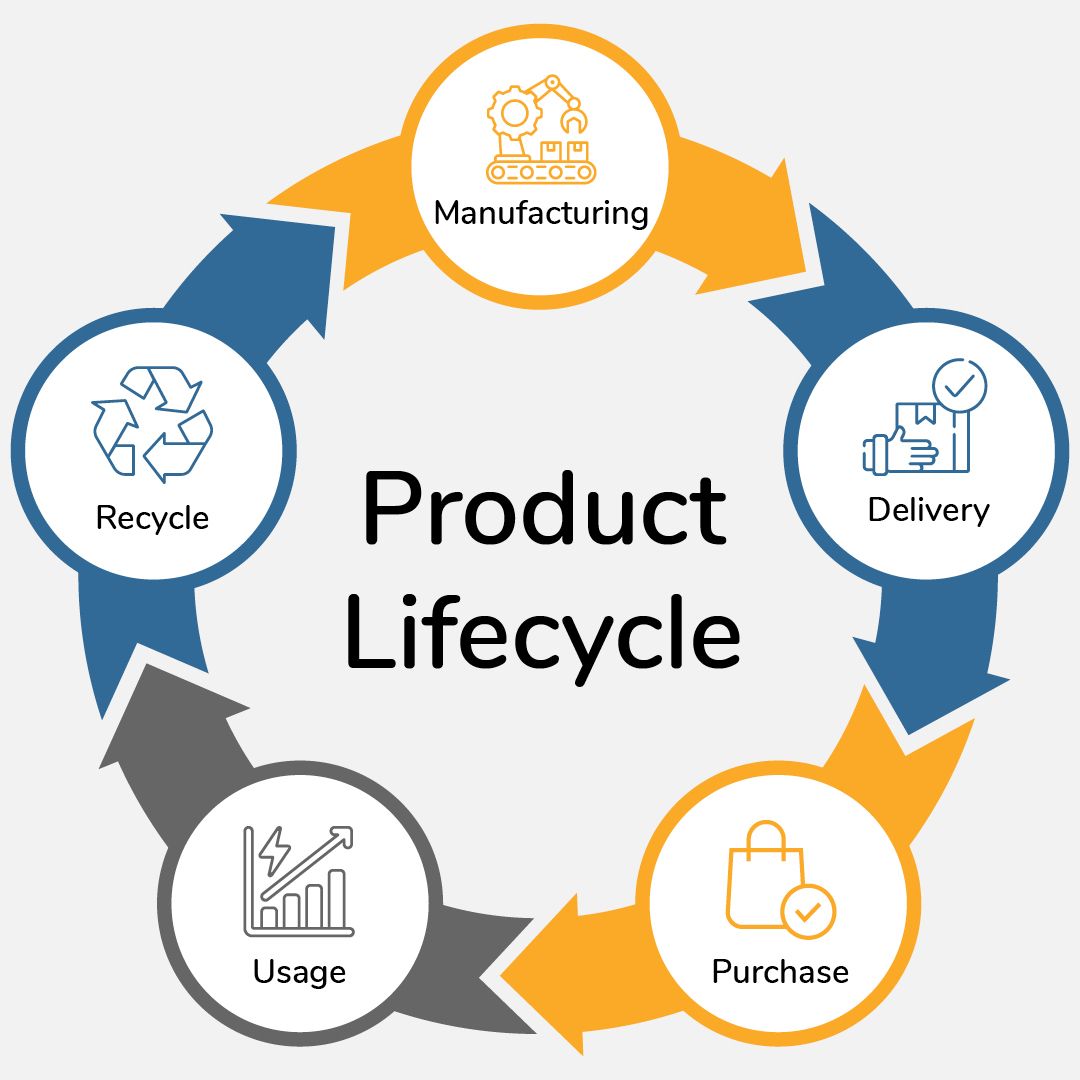Shoppers today face more choices than ever before. Making a purchase can involve choosing between a high and low price, a specialty item or a generic solution, or buying just enough for now over buying in bulk. And sometimes, shoppers even consider their values to make ethical shopping decisions.
To help supporters like you make the world a better place, all while going about your daily shopping routine, we’ve created this guide to go over the fundamental principles of ethical shopping and share seven strategies for improving your purchasing habits. Let’s get started!
Ethical Shopping FAQ
Ethical shopping might have a different meaning to you than to the person behind you in a checkout line. To ensure we’re all on the same page, let’s answer a few of the essential questions on the topic.
What is ethical shopping?
Consumers shop ethically when they make purchases that support causes that align with their beliefs and morals. This can include shopping sustainably, shopping for a cause, or buying from brands and businesses that are good corporate citizens.
What it means to shop ethically depends on your values. For example, one vegan shopper may refuse to buy any animal-related products, including leather furniture and clothing. By contrast, another vegan shopper with a less strict lifestyle may buy vegan food products but otherwise make purchases that support local causes even if they aren’t animal-related.
What brands and retailers are ethical?
Brands want to show that their morals align with their buyers’ values to boost their reputation as ethical businesses. However, some brands are transparent and will outright show their morals through their products’ labels, while others may be more vague or even deceptive.
You can identify ethical brands and retailers using a variety of criteria, but the most common characteristics to look for are:
-
Sustainability. Brands with products that are biodegradable, made out of recycled materials, or otherwise environmentally friendly demonstrate a commitment to sustainability. Some brands also donate to environmental protection groups, strive to minimize carbon emissions in their production processes, or go out of their way to ensure unnecessary plastics and other harmful materials aren’t used in their products.
-
Commitment to charitable causes. Many businesses have a philanthropic mission to give back to causes that align with their values. These organizations donate a portion of their profits to nonprofit organizations and charitable causes ranging from local schools and food banks to globally recognized nonprofit organizations.
-
Safe and fair employee work conditions. Some brands treat their production line workers better than others. Brands with a commitment to safe and fair work conditions treat all employees equally and humanely.
You can research brands and retailers by looking them up individually or using online ethical shopping apps (like ShopRaise!) to ensure you’re making ethical purchases. That way, you can spend less time researching and more time shopping.
What impact does ethical shopping have?
Ethical shopping allows everyday shoppers to make a positive impact and support the causes they feel strongly about. Based on your personal values, you help a variety of causes while you shop, including:
- Supporting local nonprofits
- Supporting local businesses
- Fighting animal cruelty
- Protecting the environment
- Supporting workers’ rights
When a significant number of shoppers come together to support ethical brands and their products, real change can happen. Reports show that thanks to ethical shopping choices, child labor rates have dropped by one-third, 61% of fashion companies have committed to using sustainable fabric, and 56% of shoppers have reported that they stopped buying from brands they feel are unethical. Together, ethical shoppers can make a difference!
Alongside these trends, corporate social responsibility (CSR) is on the rise as more businesses seek to change their practices to attract ethically conscious customers. Together, ethical shoppers can make a difference!
7 Ethical Shopping Strategies
When it comes to shopping ethically, some methods may be more practical than others depending on where you live, your budget, and the products you need to buy. To help you find an ethical shopping strategy that works for you, here are seven ways to make a difference while shopping:
1. Participate in a shop for a cause program.
There are a variety of programs that allow consumers to support good causes while shopping, including charity brands, charity credit cards, and more. While some of these methods limit what shoppers can buy, there is one program that provides the freedom to make any online purchase at no additional cost: ShopRaise.
ShopRaise
ShopRaise allows consumers to shop ethically by contributing a percentage of the sales totals from everyday purchases to a nonprofit, school, sports team, church, or other charitable organization. This also means you can support your favorite causes without spending any additional money.
To get started with ShopRaise, all you need to do is download the app or enable the browser extension when making purchases at participating retailers. Then, after checking out, ShopRaise calculates the amount the retailer will contribute based on your sales total, and it’ll be sent to your nonprofit of choice!
ShopRaise allows consumers to navigate three of the most common hurdles to ethical shopping: access, price, and flexibility. You can use the app or browser extension when shopping at a variety of popular retailers, meaning you can buy exactly what you need with ease and shop ethically at the same time. You’ll pay the same prices and be able to take advantage of the same sales and coupons that you would normally.
Plus, ShopRaise offers a gift card fundraising option, which will also contribute a portion of your purchase to the charitable organization of your choice. When you download the online shopping fundraiser app, you automatically gain access to the Gift Card Store. The digital gift cards you buy are delivered to your inbox within minutes of purchase, eliminating the paper and plastic waste that comes with physical gift cards. Then, you can forward the gift card email to a friend or family member or use it yourself to make purchases through ShopRaise’s online shopping fundraiser, thereby contributing even more to your chosen cause!

2. Buy from ethical brands.
Some brands make it a priority to have ethical products and business practices. While most of us have heard about particular brands to buy from and ones to avoid, it can be hard to remember which one is which in the middle of a routine shopping trip.
Brands also know that consumers value ethical practices and will do their best to present their products in a good light. However, positive packaging doesn’t always translate to ethical business practices.
To ensure you’re buying from ethical brands, research brand names to get answers to these questions:
-
Are they verified by third parties? Certifications and seals of approval from third-party organizations can vouch for a brand’s ethical practices. If you see a symbol on a product, try searching for it online. We’ll go over what labels to look for and how to read them later in this article.
-
What has been reported about them in the news? When you research a brand online, do any news stories come up? In some cases, you might find stories about them engaging in new charitable initiatives, while for others, you may discover an exposé about questionable business practices.
-
Are they openly supporting any causes? Some brands have partnerships with nonprofits. Most businesses want to publicize these relationships, so you should be able to find information about their connections relatively easily from the brand’s website.
-
Do they offer corporate social responsibility programs? CSR covers a wide range of positive social good activities, from funding philanthropy programs like matching gifts to ensuring their supply chains are sustainable and protect workers’ rights. Buying from these companies is a way to show your support for socially conscious and responsible businesses.
Use resources like Double the Donation’s list of matching gift companies or ShopRaise’s online shopping app to ensure you’re buying from retailers who will contribute a portion of your purchase to a good cause.
3. Shop local.
Buying from businesses based in your community keeps your local economy alive and vibrant. Supporting these businesses over chains can be an easy way to shop ethically without leaving your neighborhood. While you may need to go to specialty shops and larger stores for specific items, you can regularly buy local with:
-
Local products at grocery stores. If you live in a rural area, local grocery stores may support nearby farmers in your community by selling their products. Look for items marked "local" when choosing your produce. Plus, you might also be able to participate in a grocery fundraising program to support local nonprofit organizations.
-
Farmers markets. Farmers markets aren’t available every day, but when they are, make the most of them to buy fresh, local produce that supports your community and is high-quality. Additionally, most farmers markets also have a variety of other unique products that represent your community’s culture.
-
Restaurant sponsorships. Schools, sports teams, and nonprofits often partner with restaurants to fundraise for their cause. During a restaurant sponsorship, the restaurant and the organization they’re supporting choose a night where a portion of the proceeds go to the nonprofit. If you see a local restaurant planning a sponsorship night, consider eating out that evening!
Check if any of your local businesses have online stores. If they do, you can make purchases from the comfort of your own home while also ordering from larger businesses for items that aren’t available locally. In turn, you’ll save travel time while still supporting your community.
4. Thrift and buy used.
Many perfectly usable items often get donated to thrift stores and secondhand shops. While it can be tempting to buy a shiny new version of whatever product you need, it’s always more sustainable to buy something gently used.
While certain items have to be bought new, more products can be purchased secondhand than you might first assume, including:
- Clothing
- Furniture
- Electronics
- Toys
- Tools
- Musical instruments
- Sports equipment
- Books
Check out your local thrift and secondhand stores to see if they have anything you want that needs a new home. Plus, for those on a budget, thrifting can be a convenient way to shop ethically while also saving money. Then, when you’re done with your own possessions that are still in good shape, you can consider donating them to help out another future shopper.
5. Recycle when possible.
When you buy something, think about how you’ll use it and if or how you’ll eventually throw it away. Ethical shopping considers every part of a product’s life from its initial manufacturing to how it will be disposed of.
In elementary school, many of us were taught the three Rs: reduce, reuse, and recycle. Now, as a responsible consumer, these principles can help inform your shopping. Before purchasing a product, ask yourself:
-
How long will this last? Some products are built to last. High-quality items that you’ll use again and again are a good investment for both you and the environment.
-
Can this be donated? Items like clothes, books, and toys can be donated to nonprofits, libraries, schools, and churches to help your community. As mentioned, you can also help other ethical shoppers with their own thrifting by donating gently used items to secondhand shops.
-
Will this biodegrade? If an item is thrown away, how long will it take to break down in a landfill? Some items, such as food waste, compost in days or weeks, providing an extra service for those with gardens. By contrast, items like plastic bags and styrofoam cups can sit in landfills for hundreds of years without breaking down.

Judging whether an item is recyclable requires assessing both your own personal need for it and the science behind recycling. For example, if you plan to buy a sturdy plastic bucket to help wash your car, the bucket will not easily biodegrade, but you’ll likely use it for years to come. Purchasing products like this still follows the first of the three Rs by reducing your need.
6. Learn to read labels.
Shoppers can make ethical purchasing decisions by looking out for key product labels to inform their choices. However, many shoppers aren’t sure what labels to look for, as surveys report widespread confusion over food labeling organizations.
While shopping, check for labels that show whether a brand is operating ethically, such as:![]()
-
Fair Trade Certified and Fair Trade Foundation. Fair Trade Certified and Fair Trade Foundation labels indicate that a product meets certain environmental, economic, and social standards. These include having safe work environments, transparent trade relations, and a commitment to minimizing environmental impact. Fair Trade Certified applies to agricultural goods, while other products can receive approval from the Fair Trade Foundation.
-
Cruelty Free International. The Cruelty Free International bunny indicates that a product was not tested on animals at any point in the supply chain. Brands with this label undergo ongoing independent audits to ensure they always follow cruelty-free manufacturing practices.
-
Certified Vegan. Products labeled Certified Vegan must not have been tested on animals or contain any animal products or byproducts. This applies to food items as well as clothing, furniture, and other products that may use fur, leather, skins, and other animal products.
-
USDA Organic. To be considered organic, products must meet the USDA’s crop standards, which include having no prohibited substances in the soil used to grow the product, using only approved pest removal substances, and taking preventative measures to ensure animals are healthy, among other requirements.
-
Various Environmental Labels. There are many different environmental verifications products can have, including labels of approval from the Rainforest Alliance, Globally Recycled Standard, Cradle to Cradle, Bird Friendly, and The Global Organic Textile Standard.
If you’re having trouble finding information on a specific brand, look for these and other labels that certify that a product meets certain ethical standards. When shopping, use your phone to pull up a cheat sheet of key labels that apply to the type of products you’re buying to make your purchasing decisions easier and more ethical.
7. Consider participating in boycotts.
Sometimes ethical shopping is about avoiding certain brands just as much as it’s about buying from good ones. Consumers have the power to put pressure on brands with questionable business practices to encourage them to behave more ethically by not buying their goods. In these situations, it might make sense to consider joining a boycott.
Labor unions, nonprofit organizations, and other groups have organized boycotts for decades to protest a variety of unethical business practices. You can learn about ongoing boycotts by reading the news and researching brands before making a purchase.
If you participate in a boycott, your purchasing options will be somewhat limited. This is especially true if the boycott is against a large company that owns many smaller brands. When you’re avoiding one brand, explore other options and start buying a more ethical version of the same product. In some cases, you may even find you like it more than the one you originally intended to buy!
Wrapping Up: Learn More About Ethical Shopping
Ethical shopping requires committing to only buying products that meet your moral standards. Sometimes, this might restrict your options or require additional research before making a purchase, but there are reliable alternatives that can help you make ethical shopping a convenient part of your everyday purchases.
To learn more about how you can do good in your community while shopping, check out these additional resources:
-
Shop for a Cause: How to Give Back While Shopping Online. Online shopping allows supporters to give back to their favorite causes. Learn how you can do more while shopping with this complete guide.
-
Passive Fundraising: 7 Best Ideas to Earn Extra Revenue. Interested in supporting a local nonprofit without reaching back into your wallet? Check out these passive fundraising ideas to learn how you can participate.
-
Charity Affiliate Programs: 10 Best Options to Learn More. Learn how you can support your local school through your daily shopping with this guide to online school shopping fundraisers.



